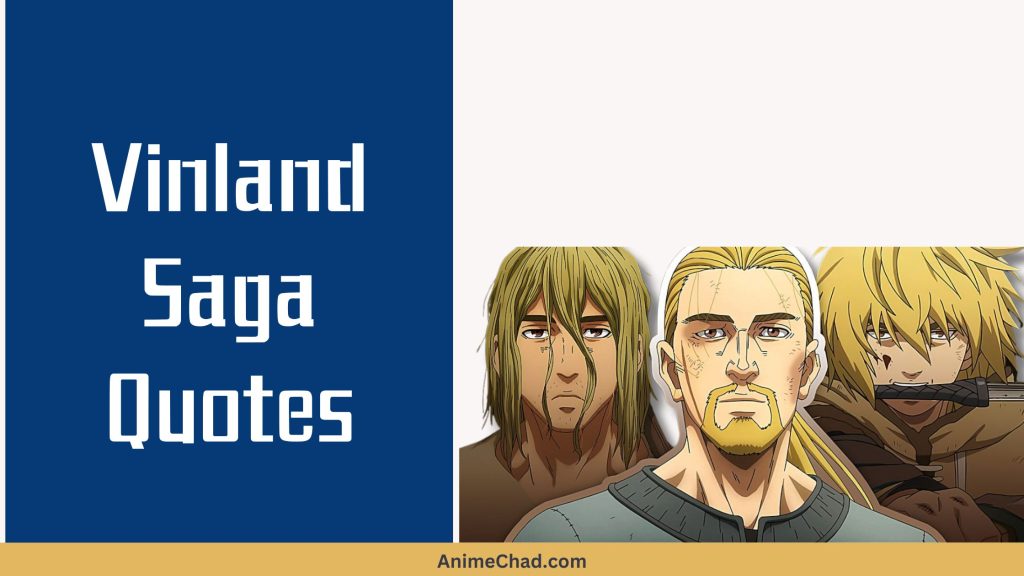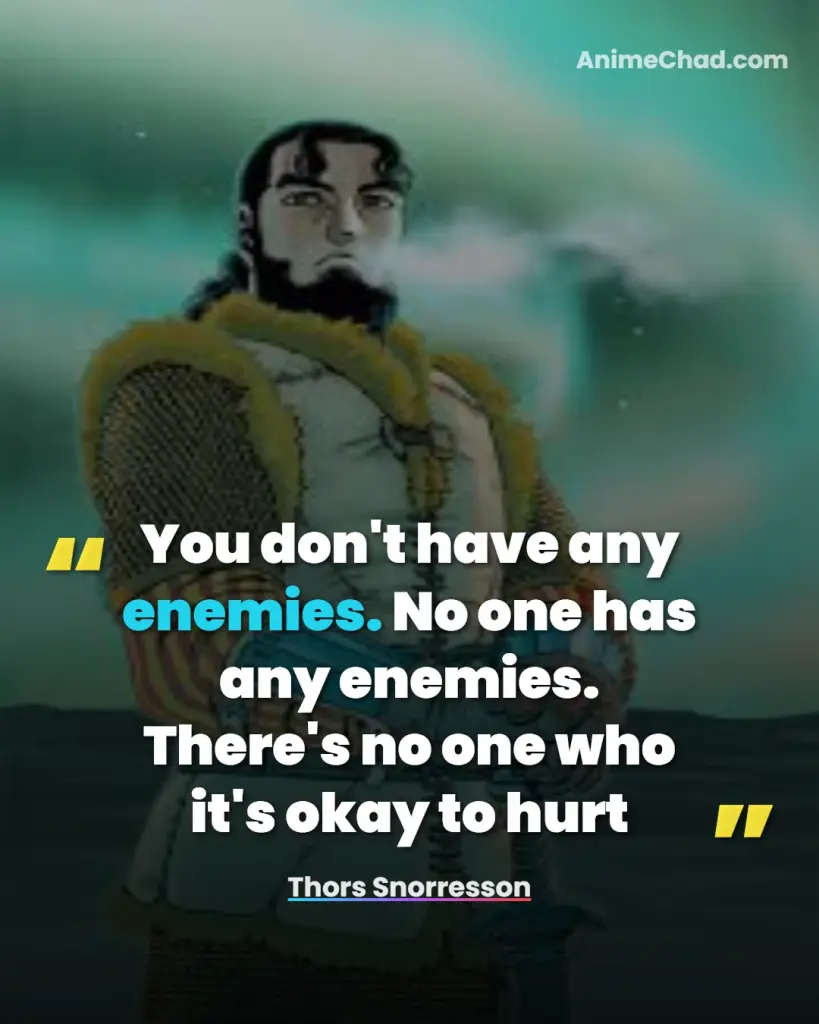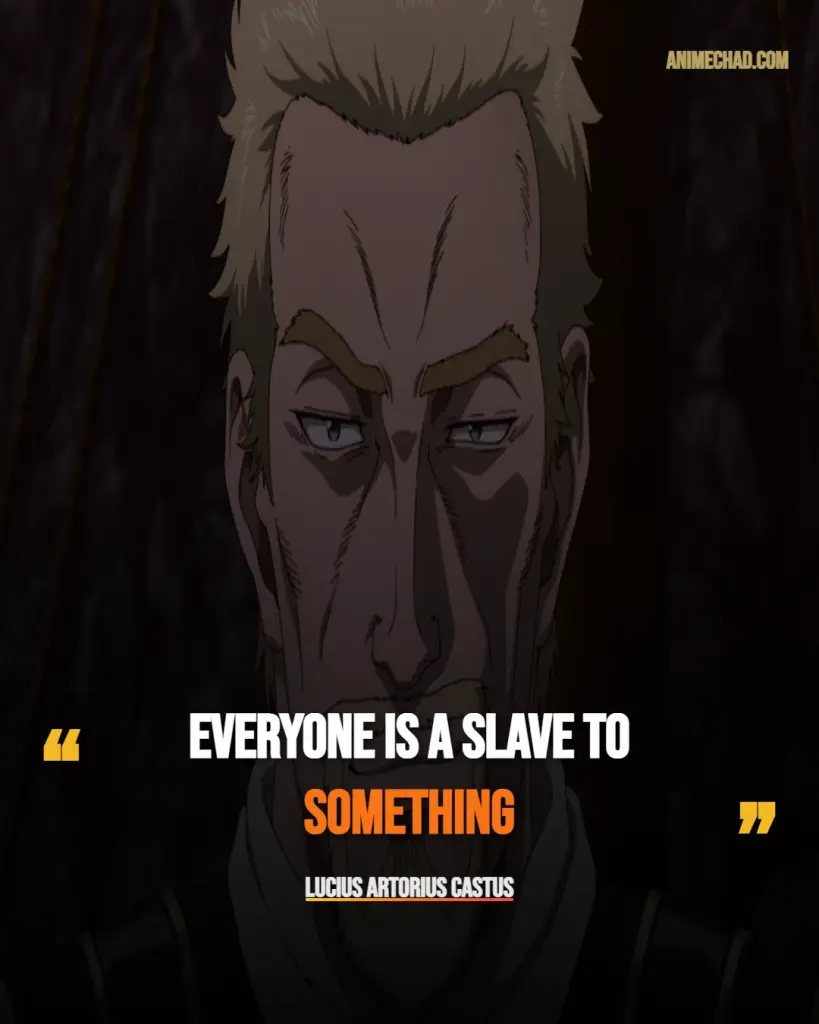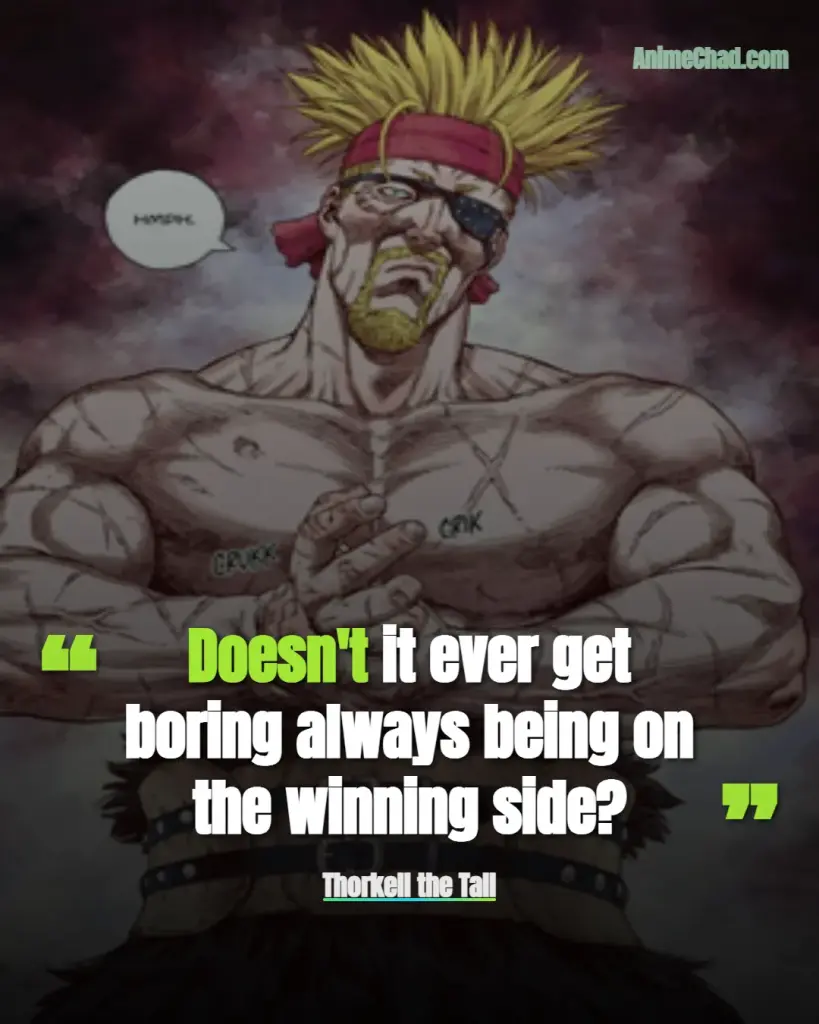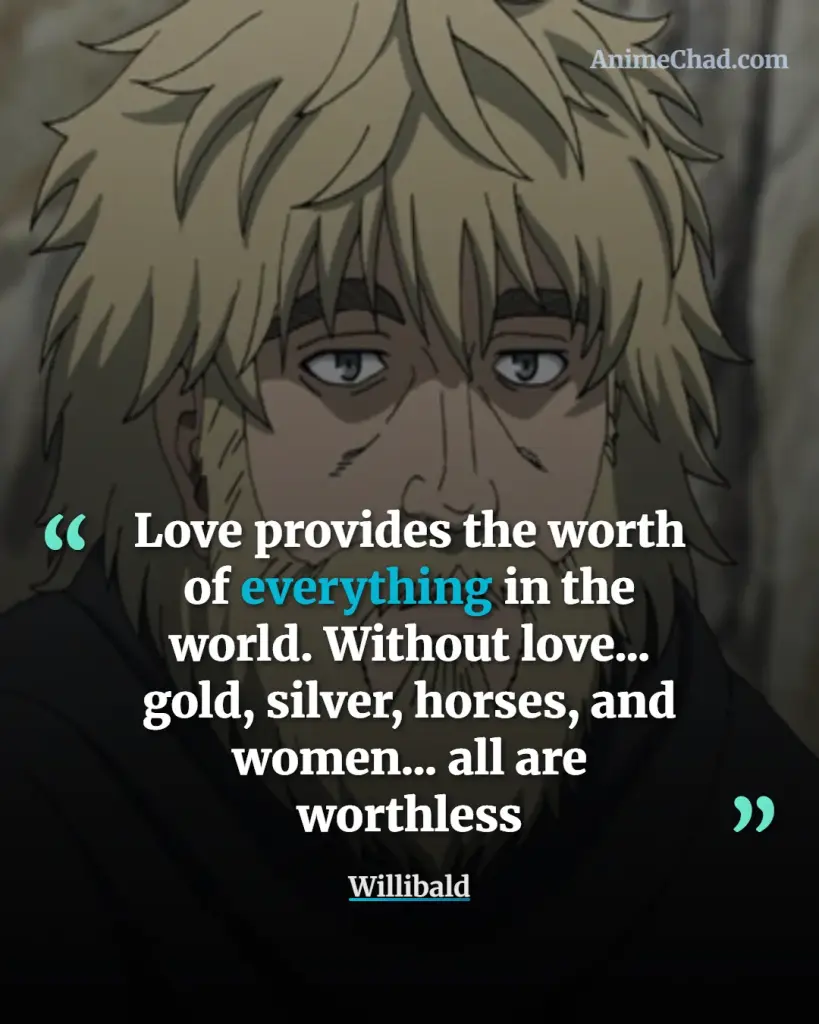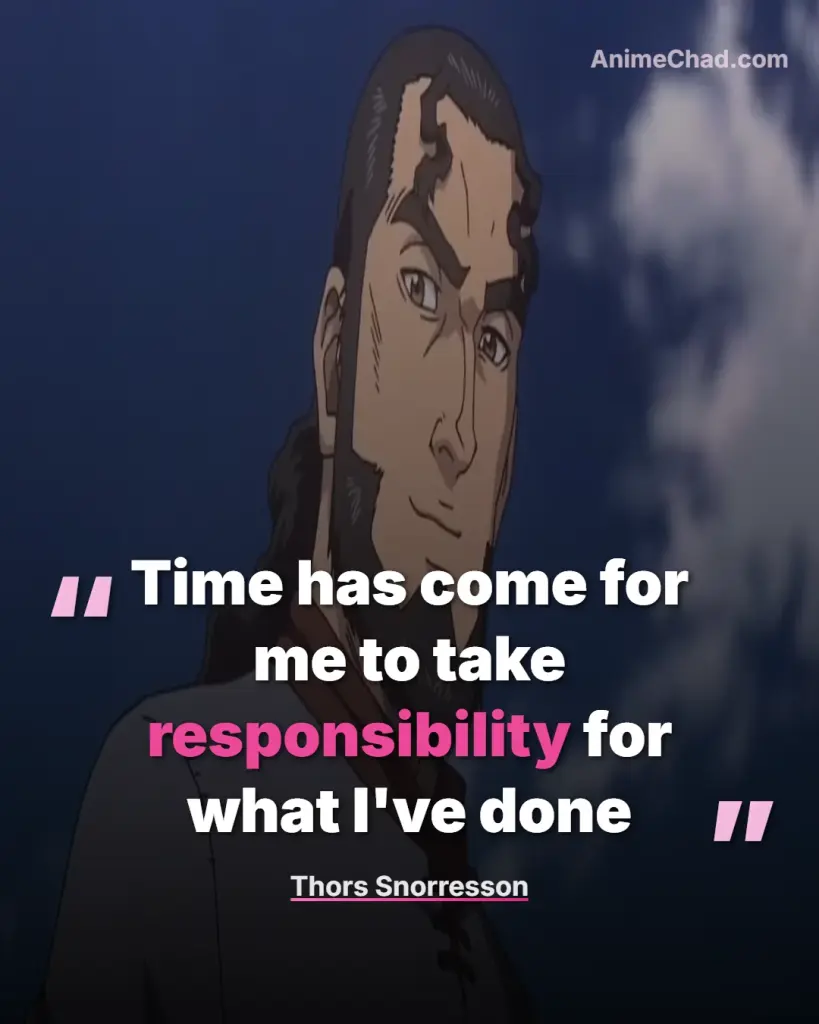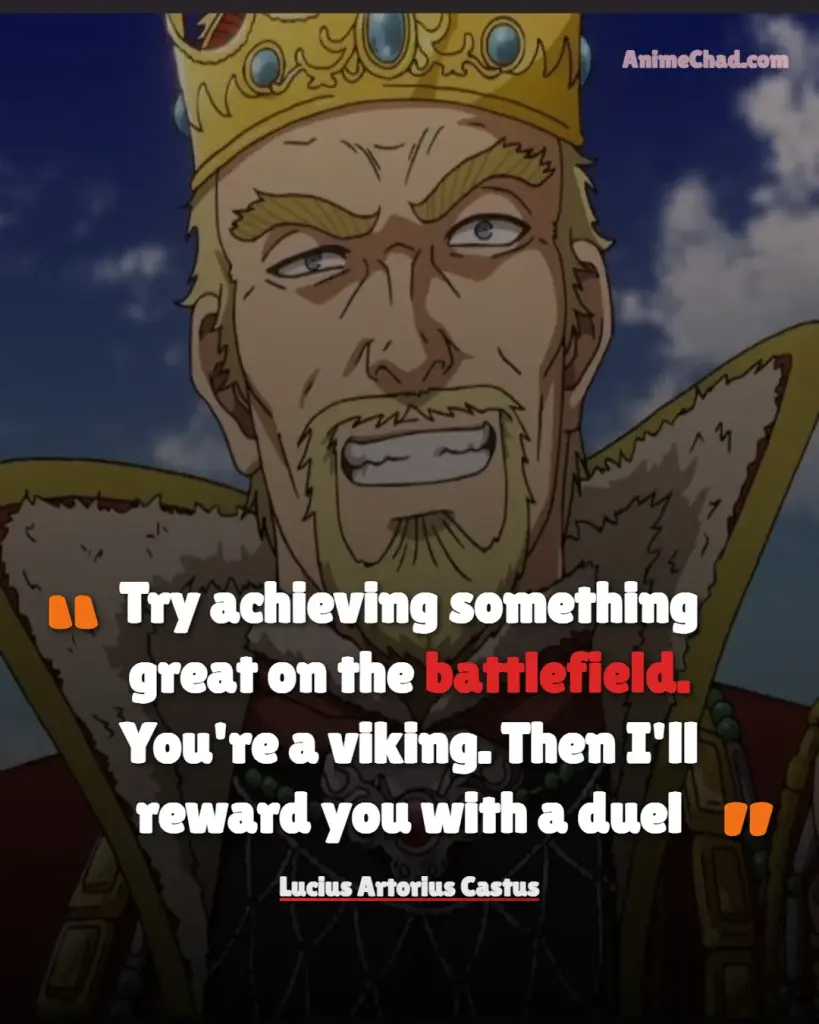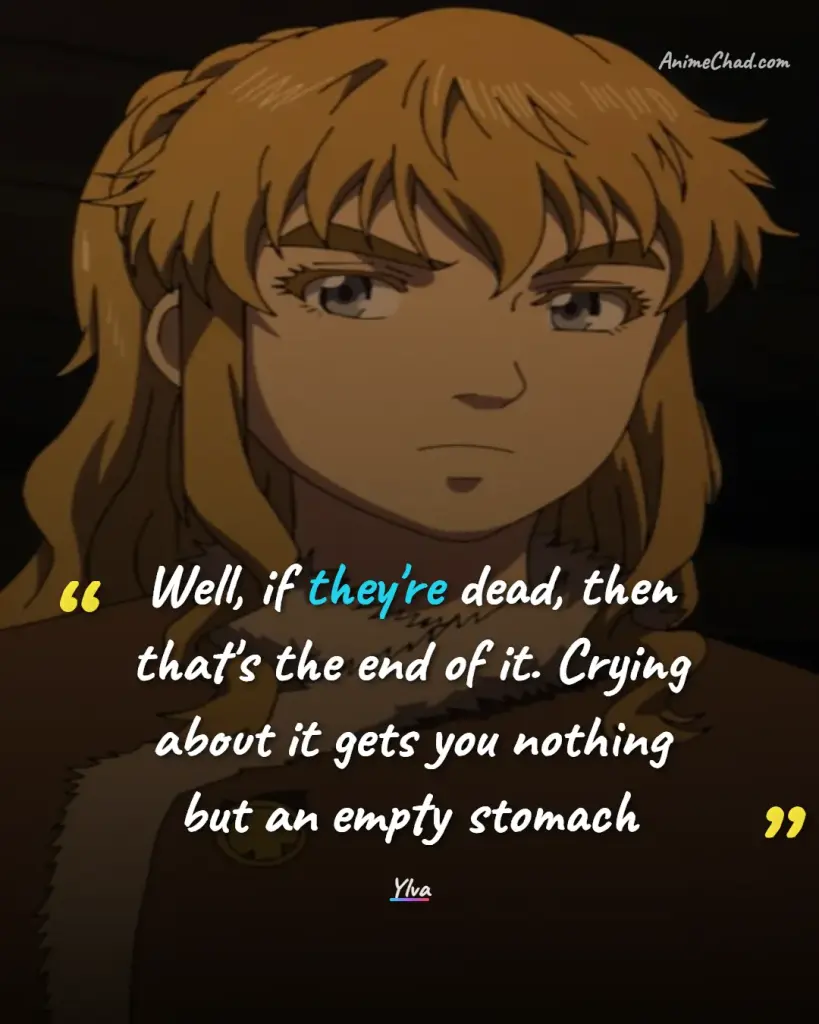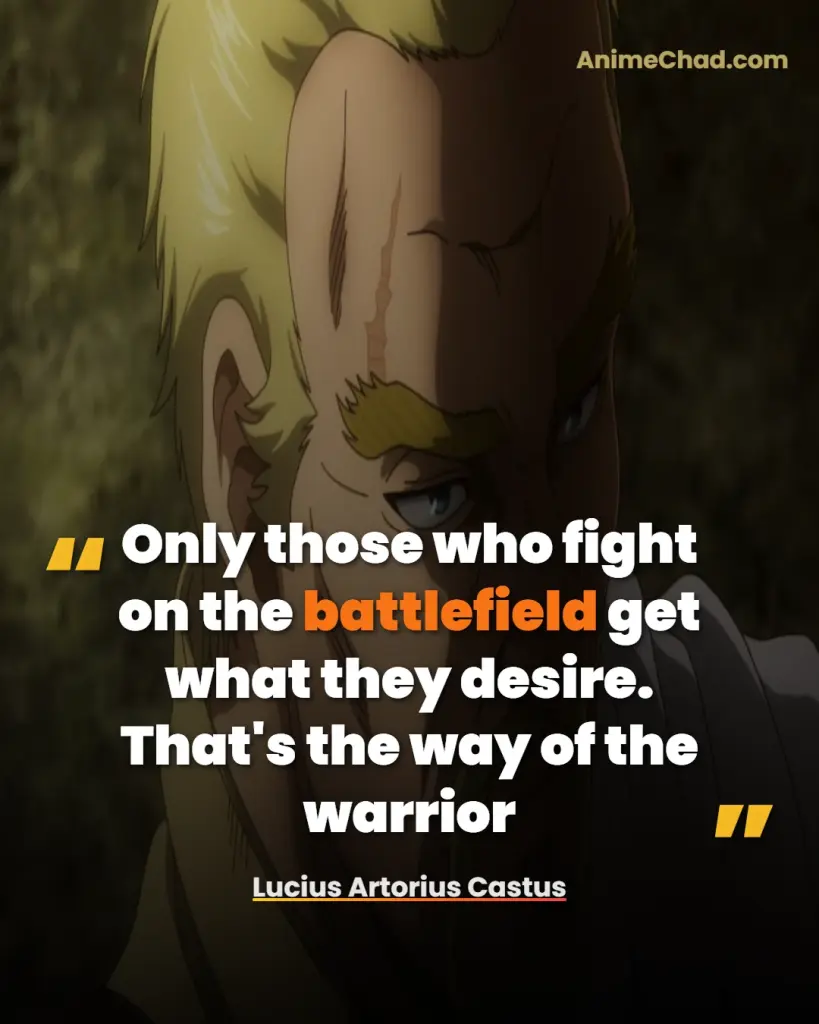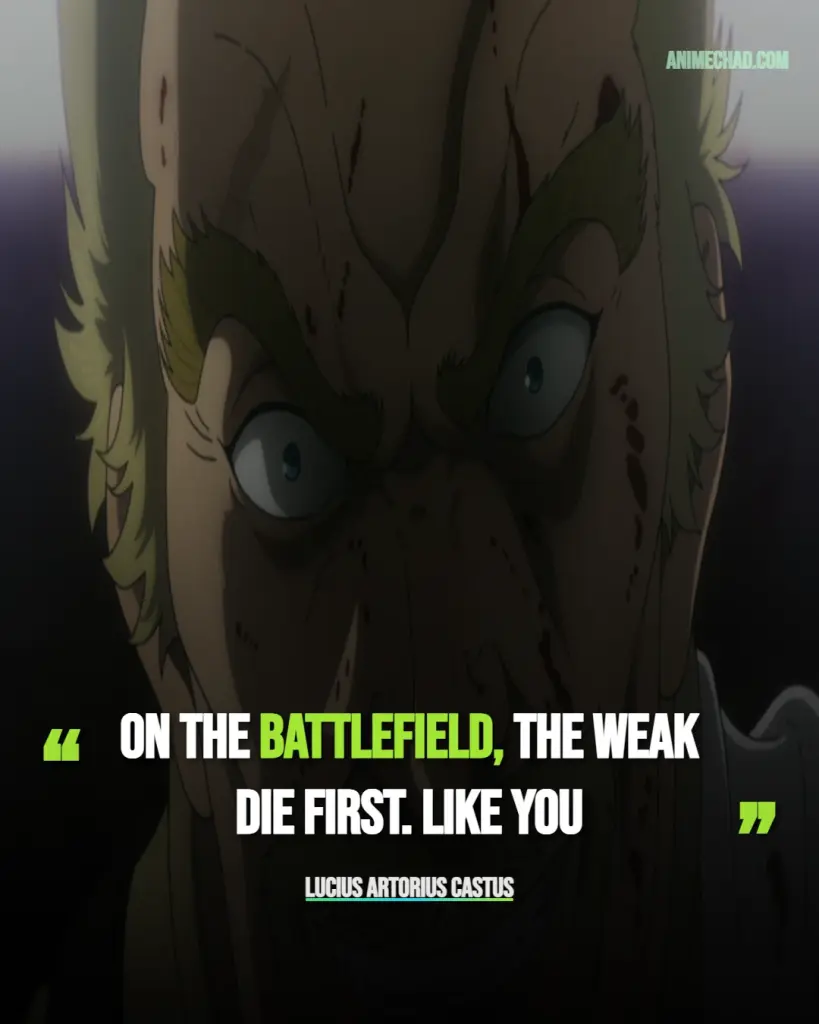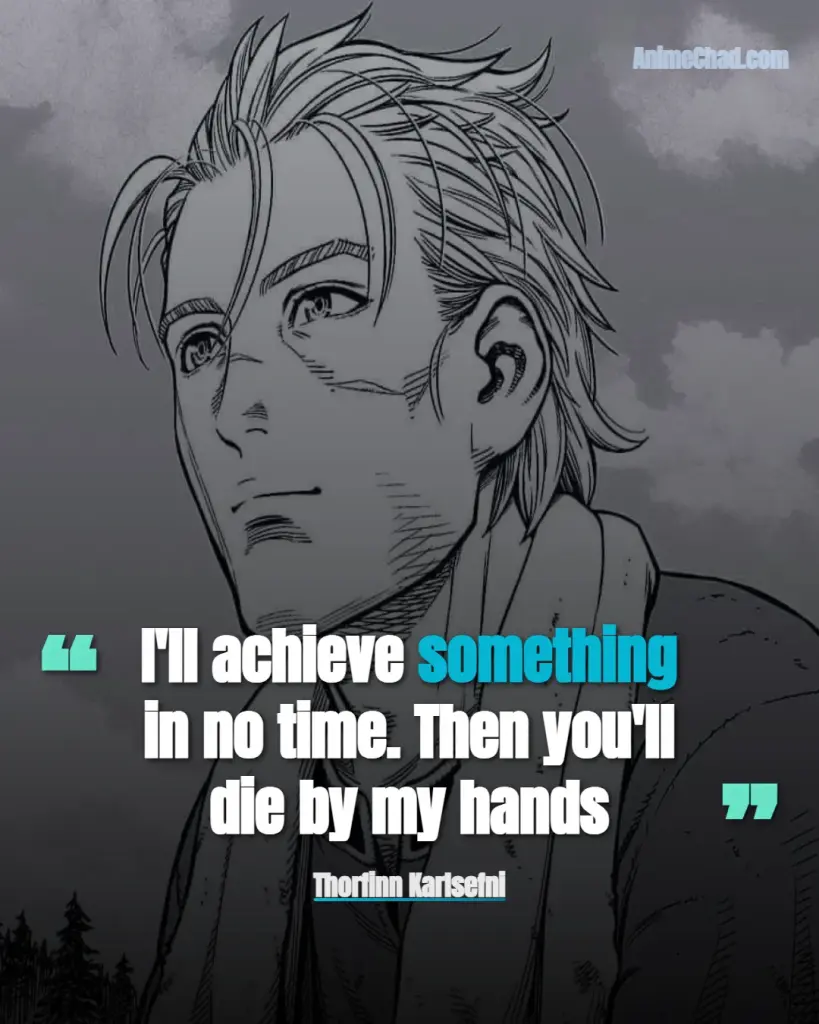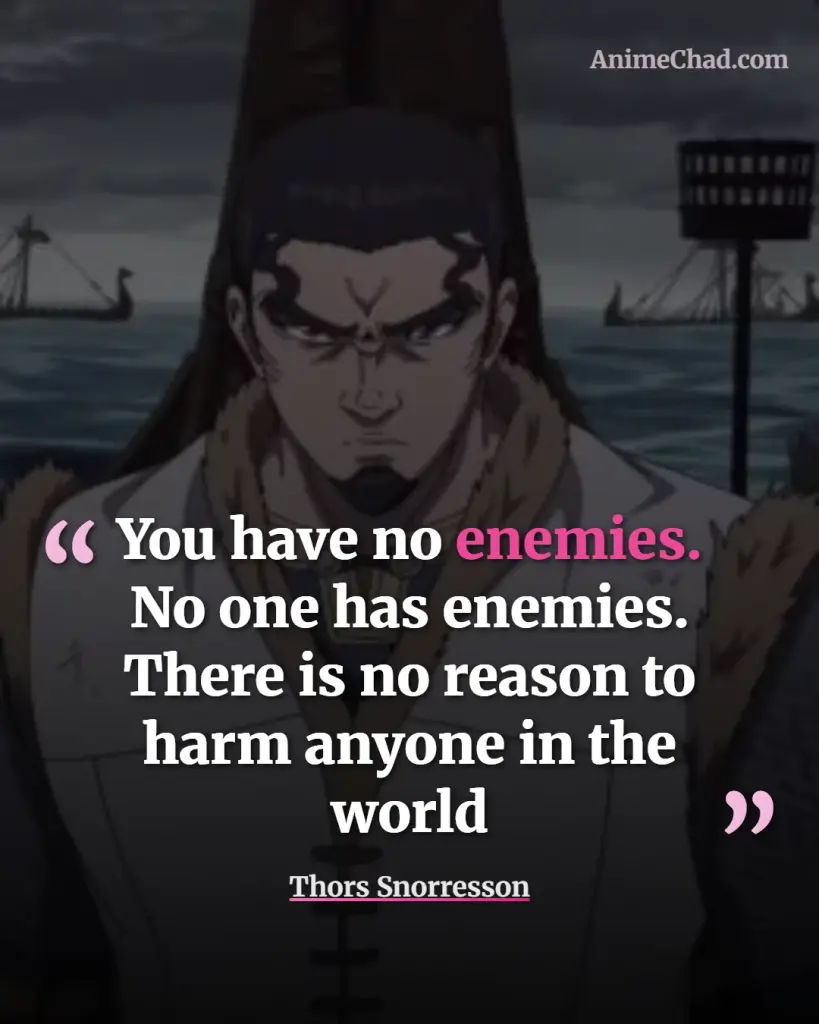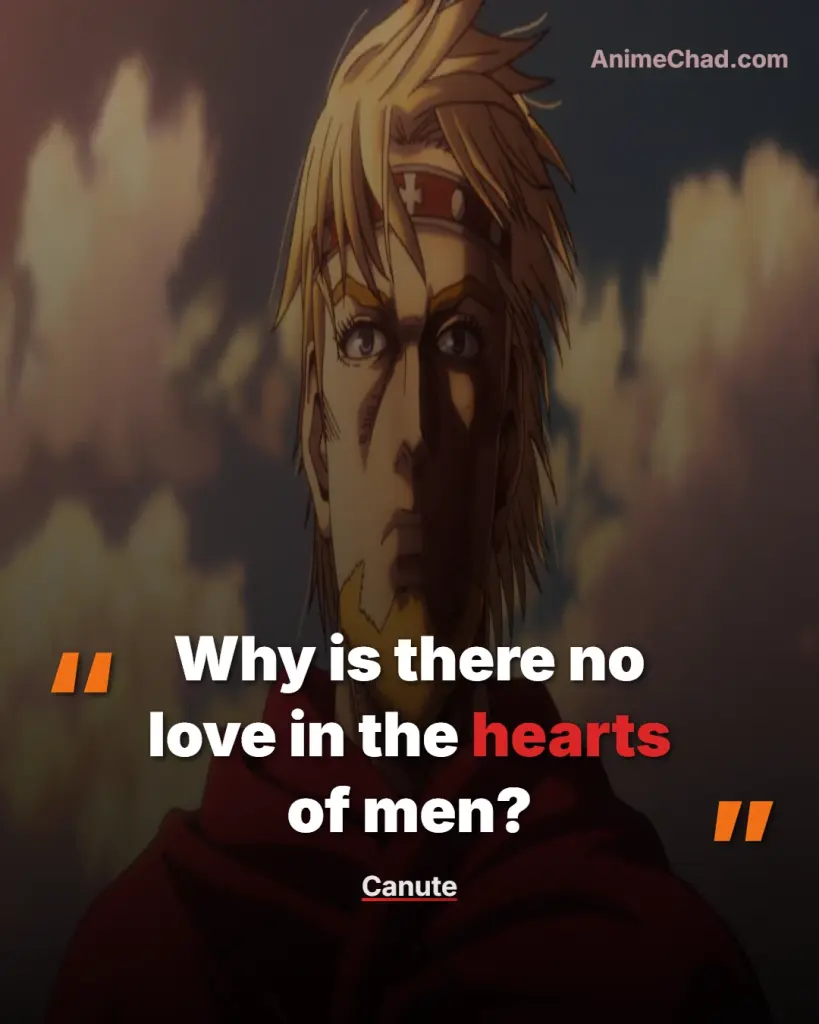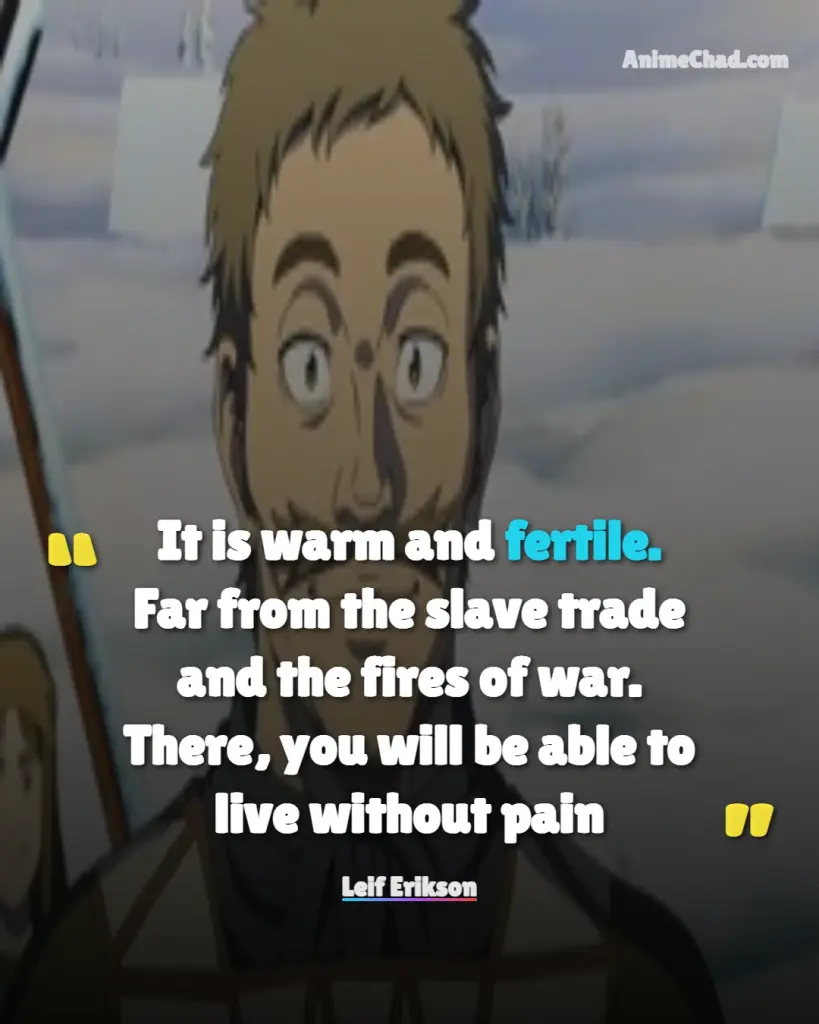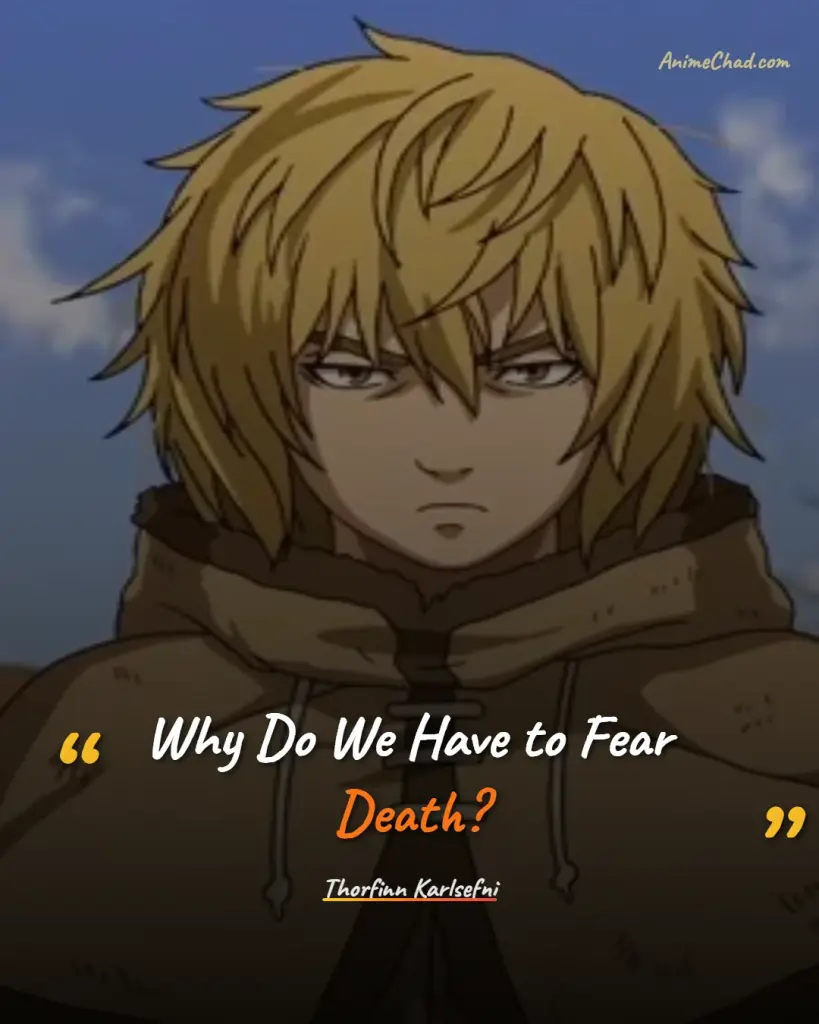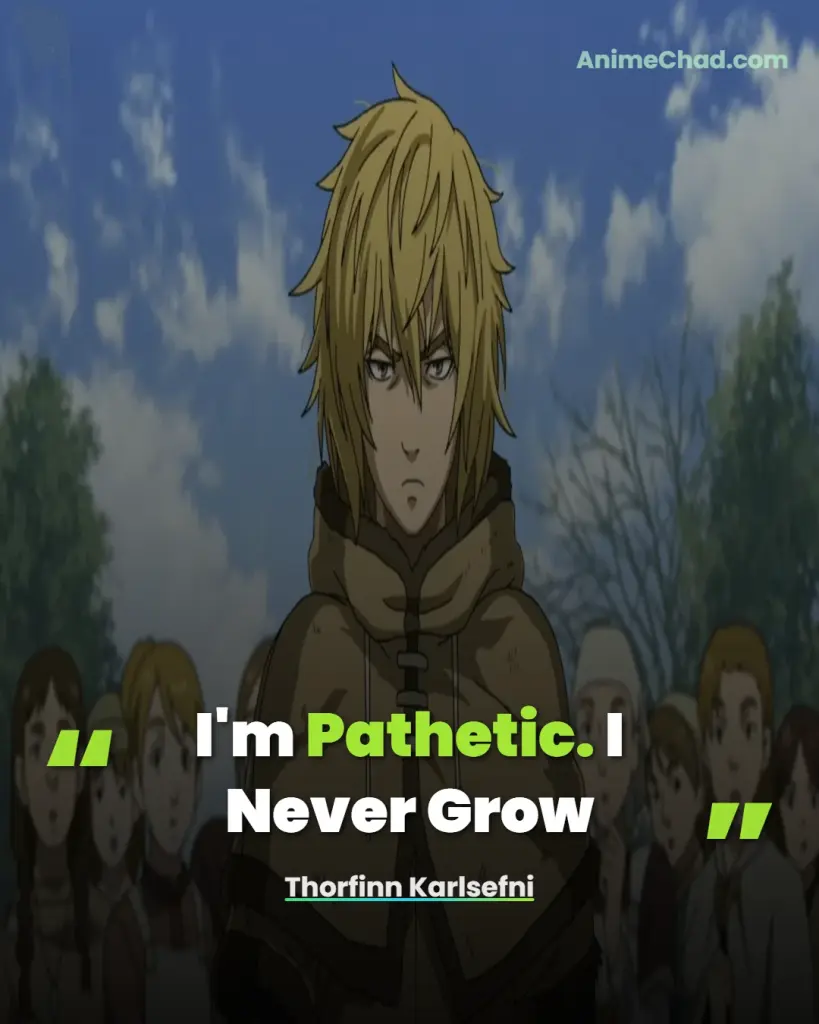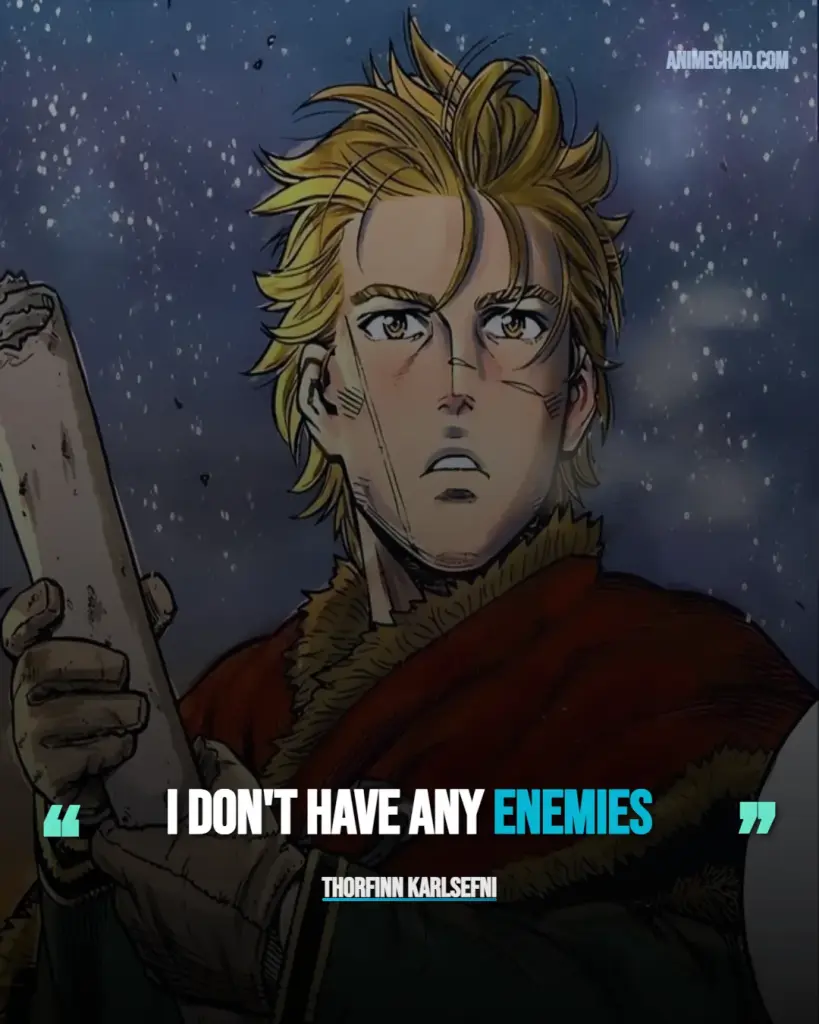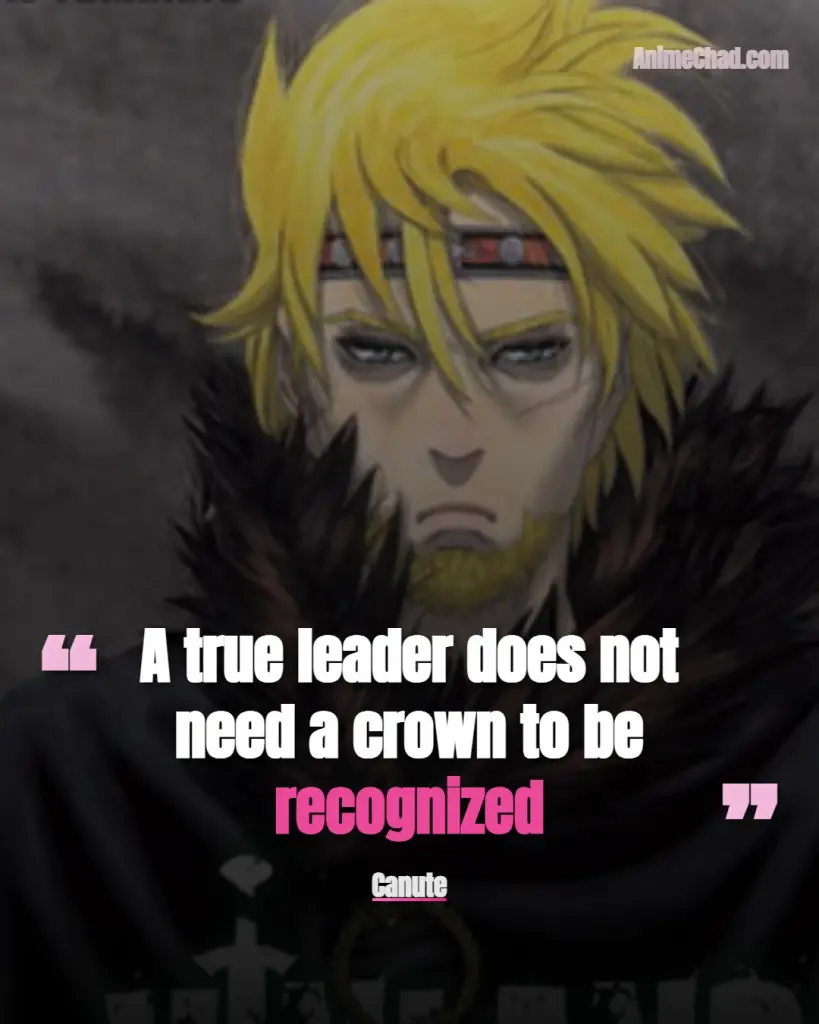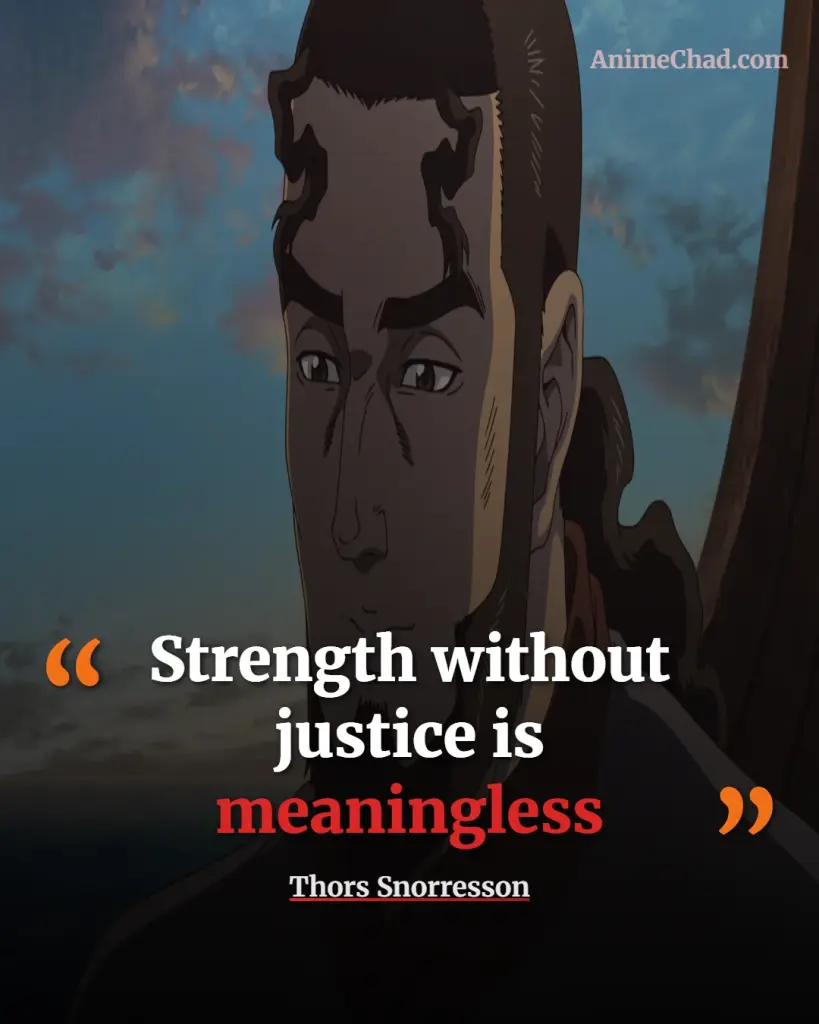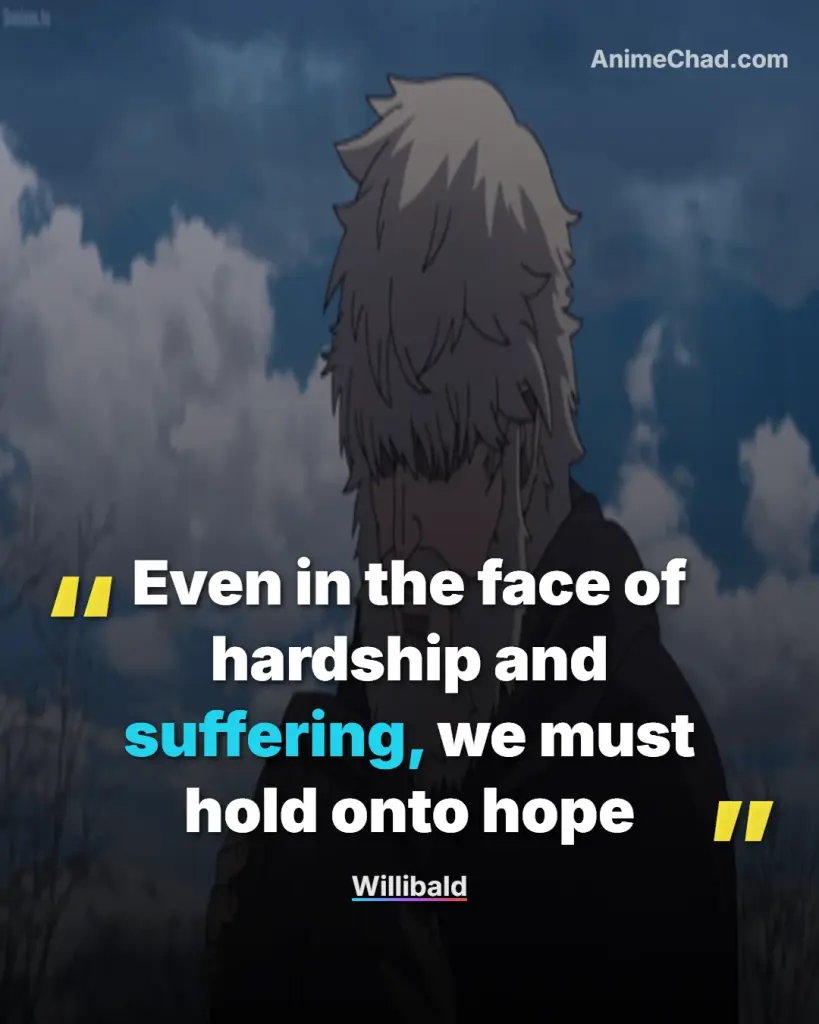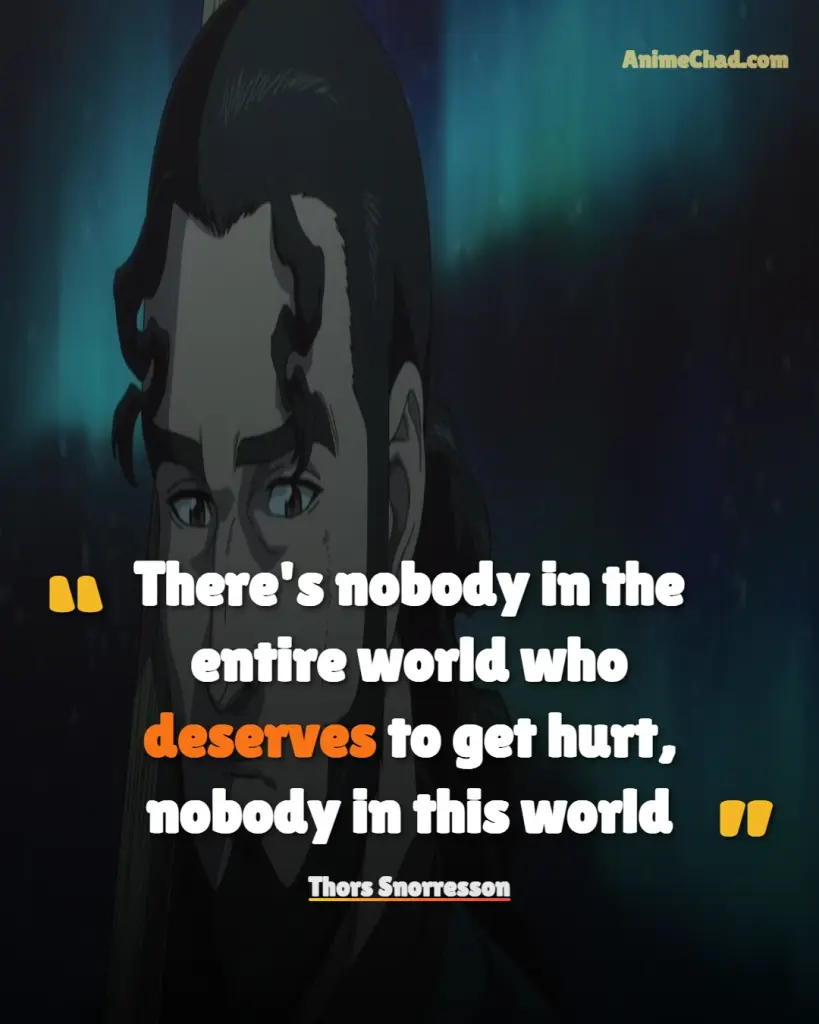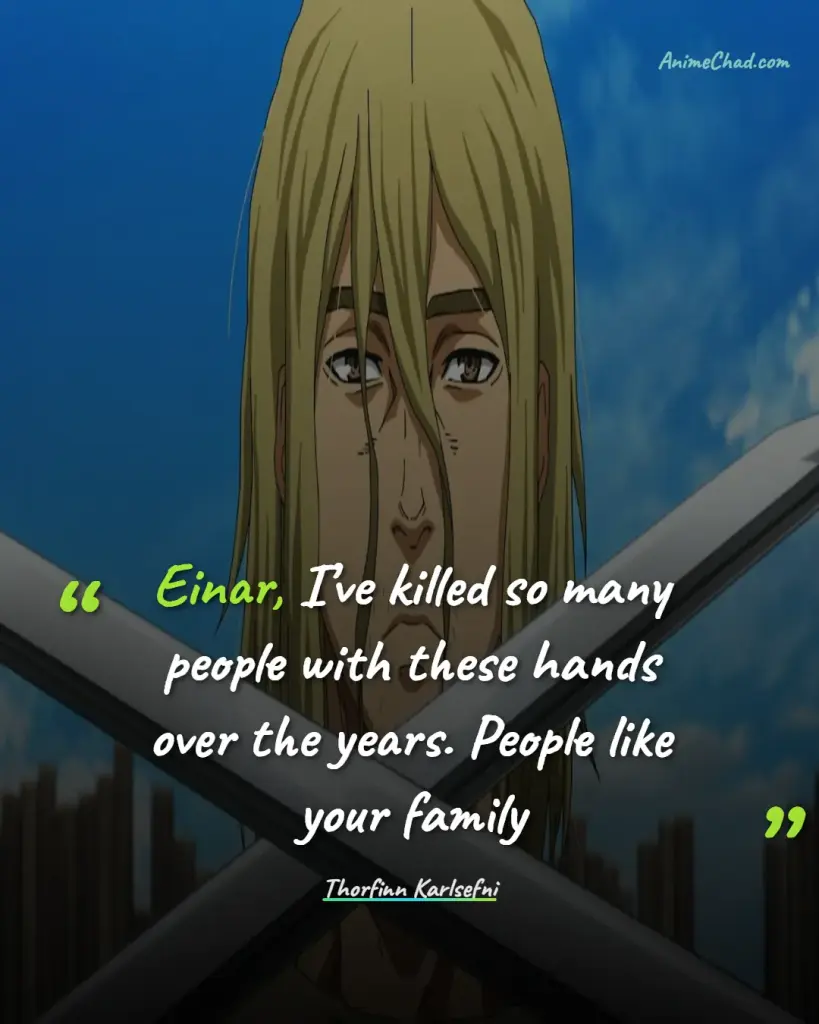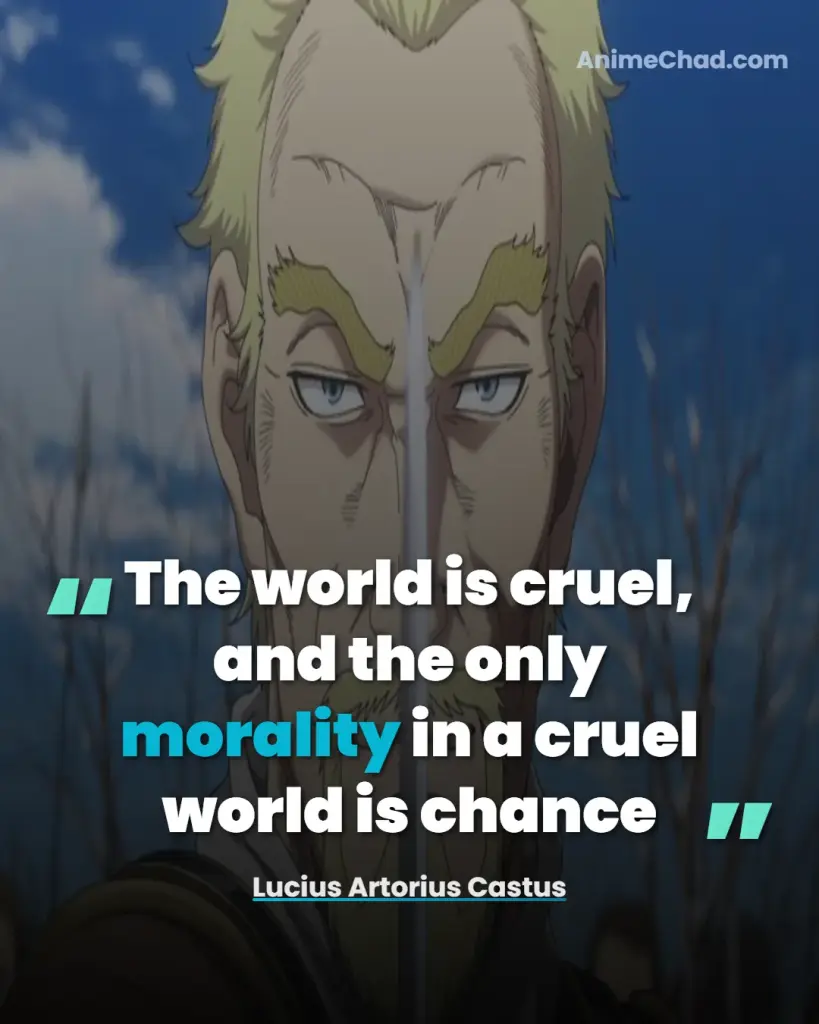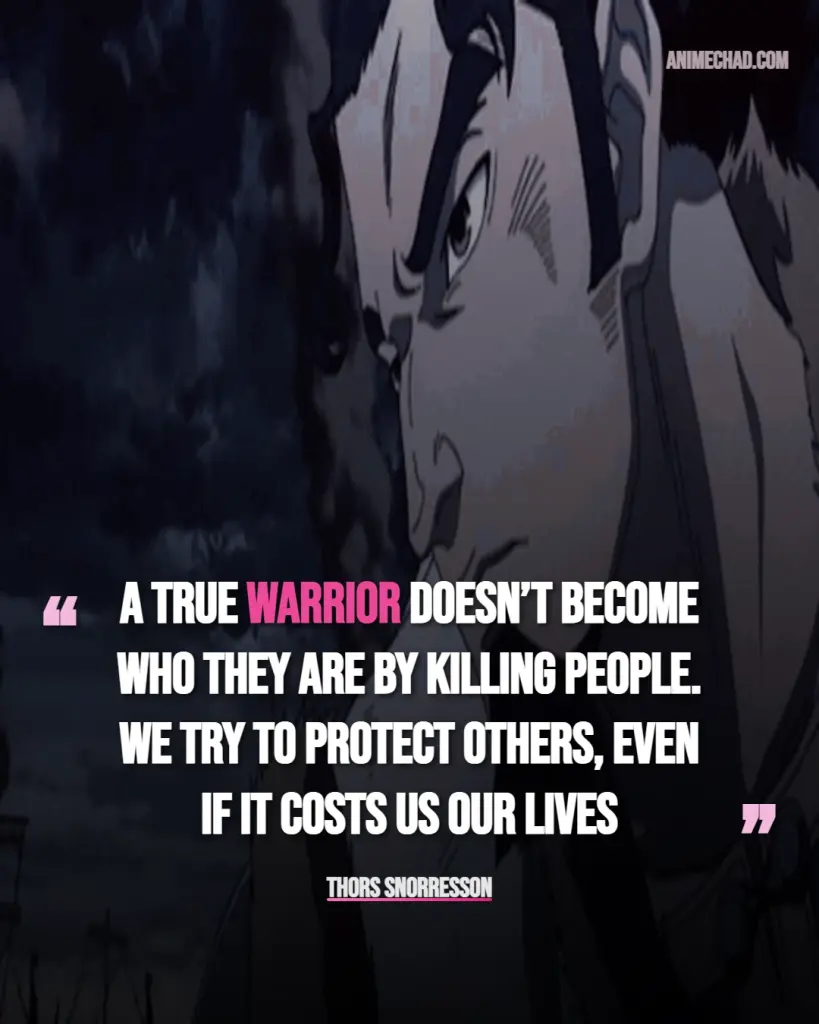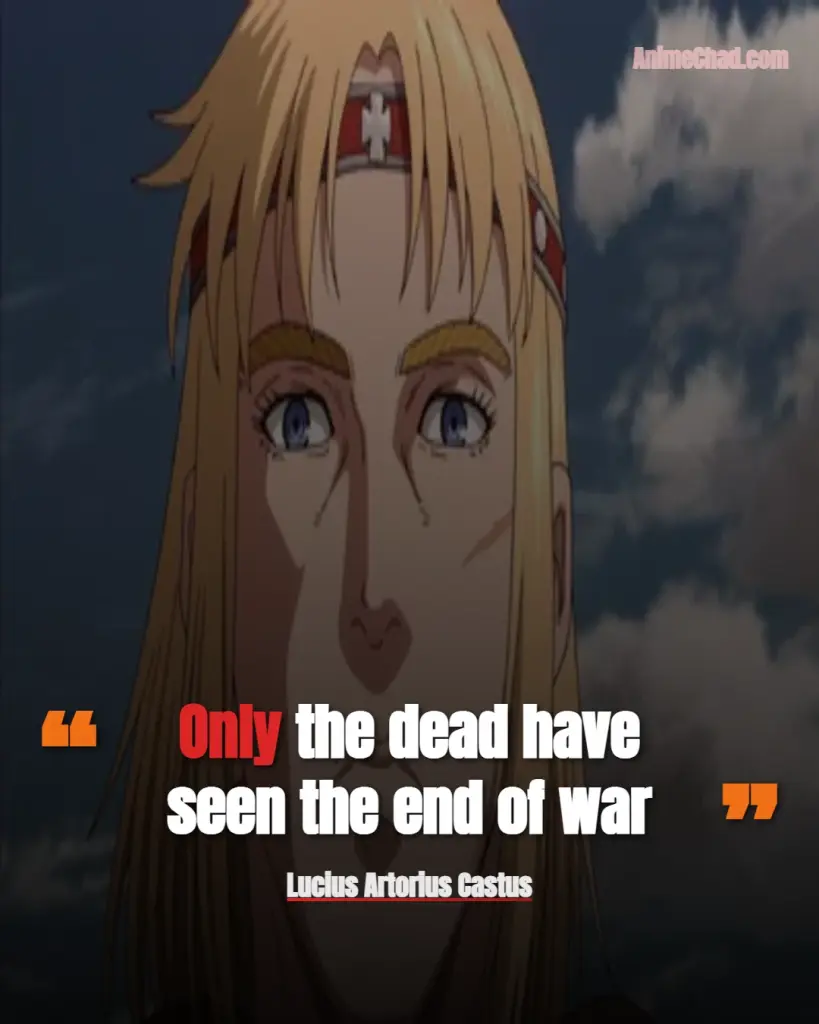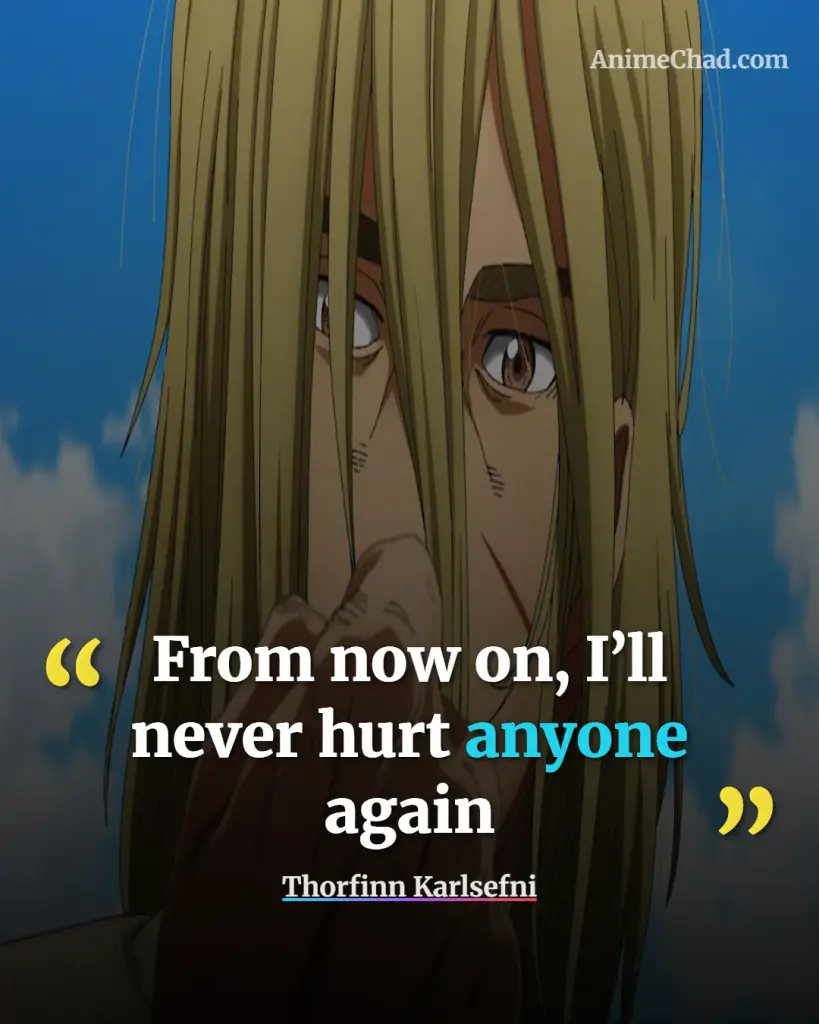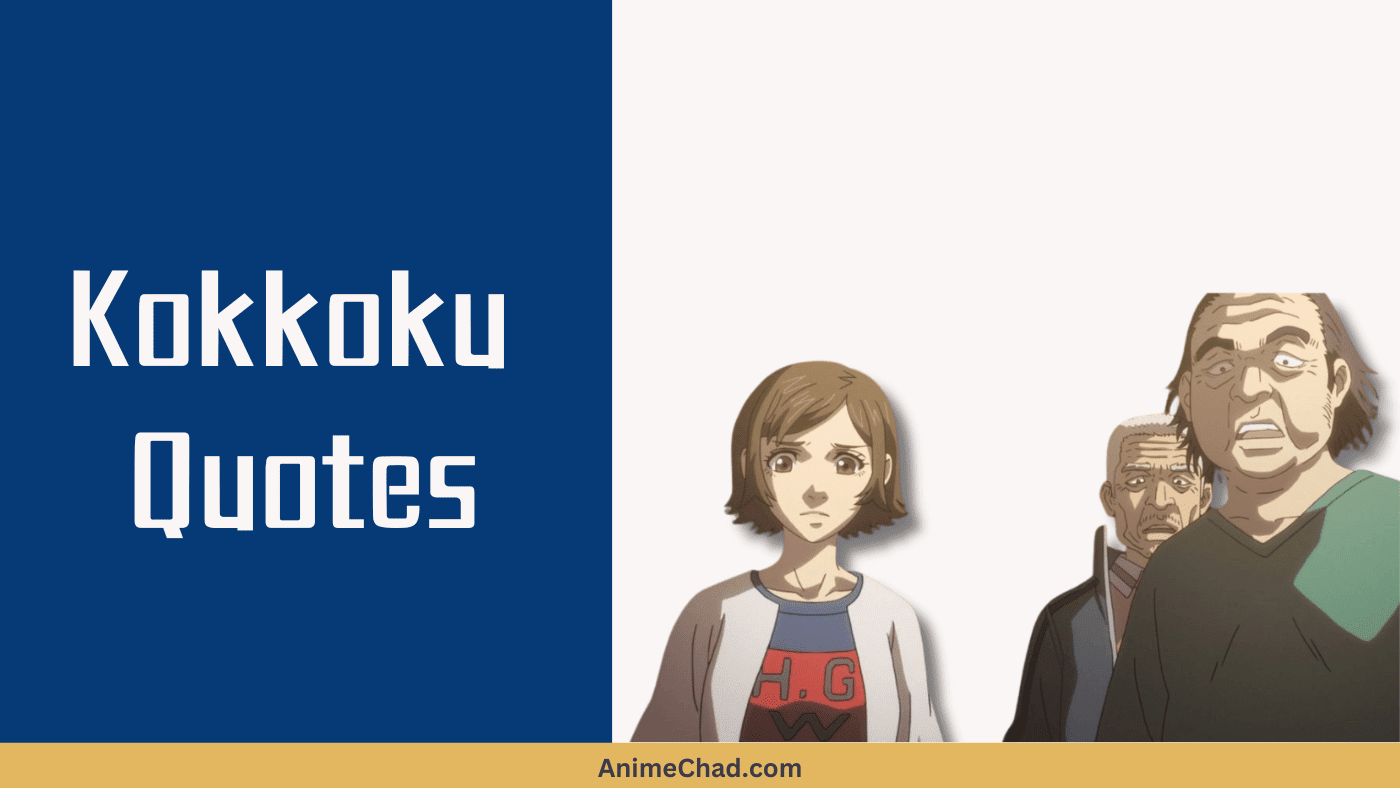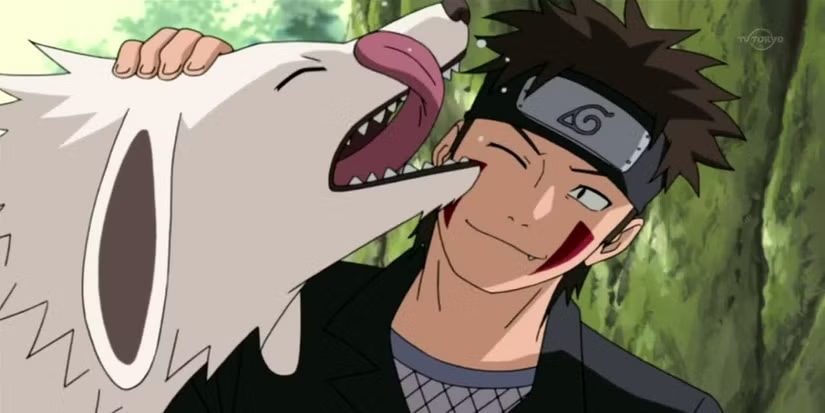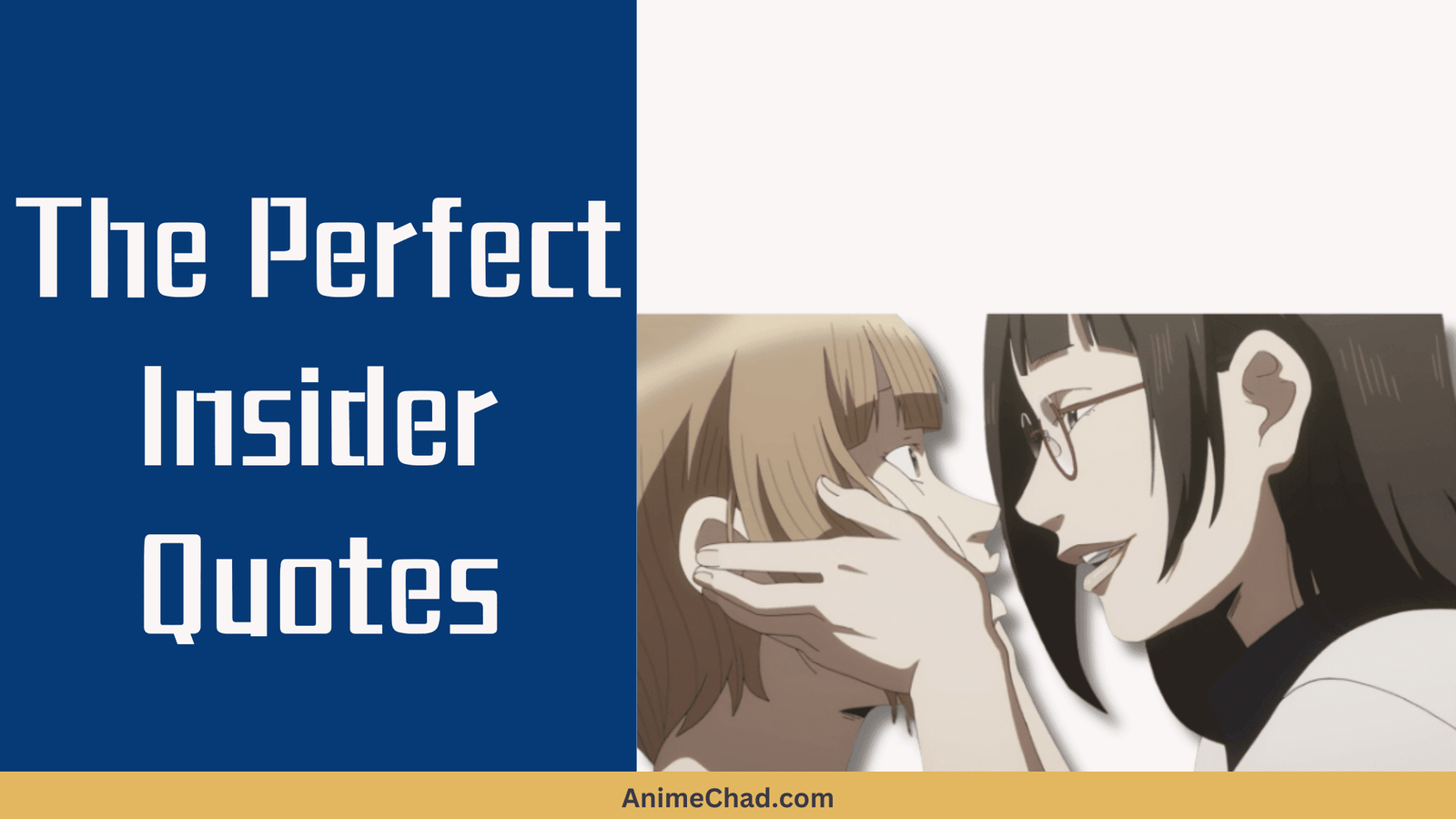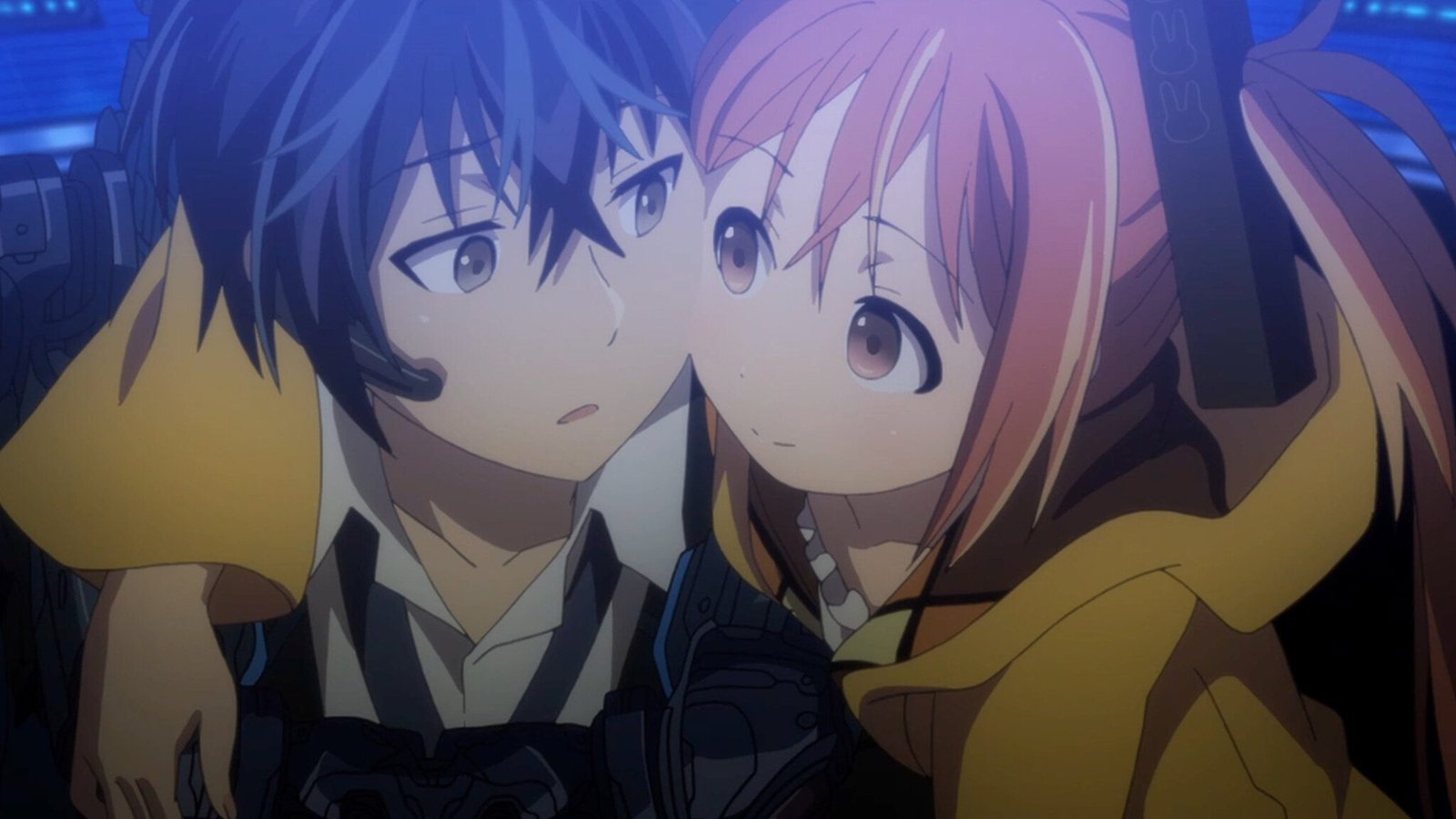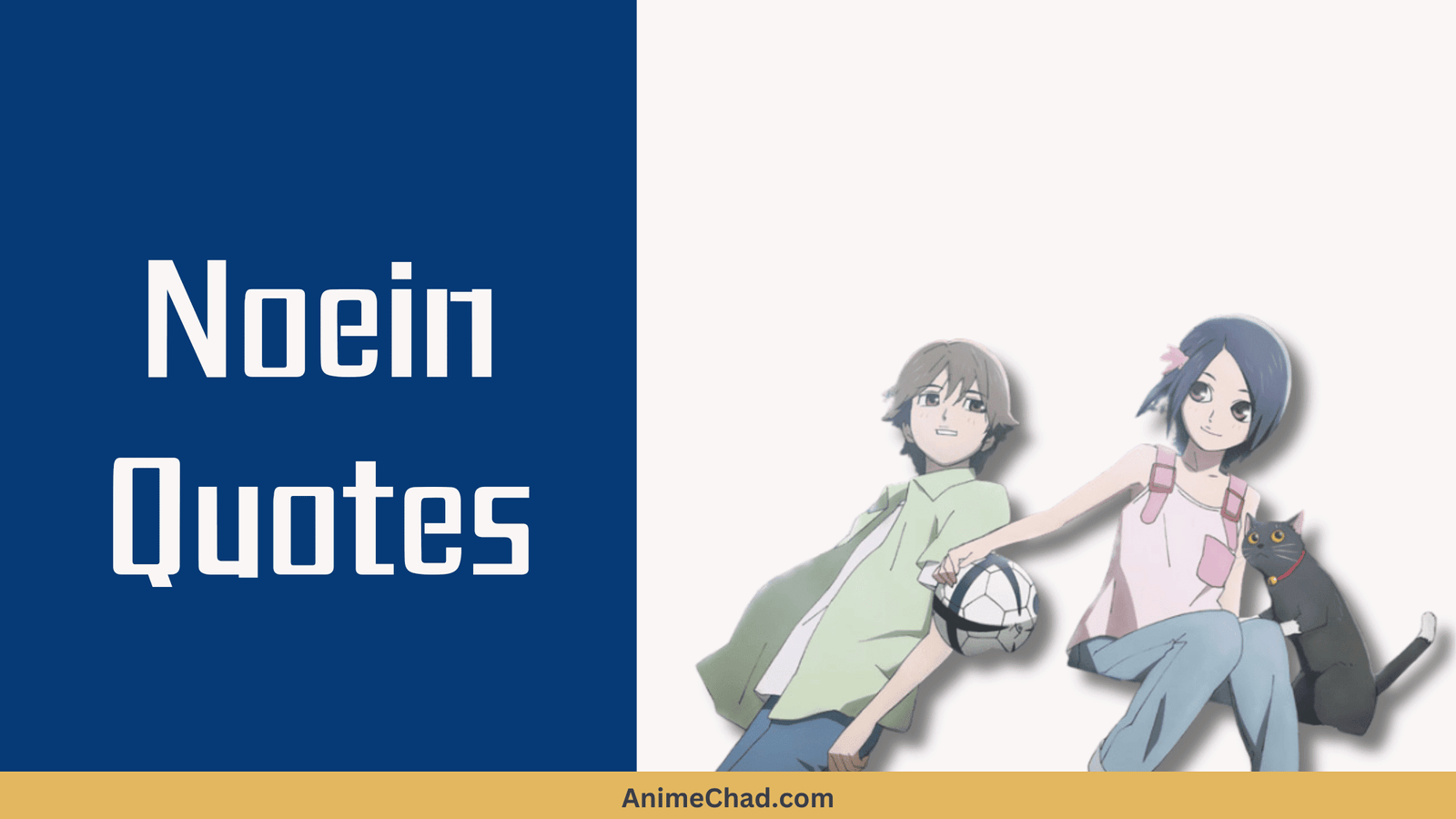Vinland Saga chronicles the epic journey of Thorfinn, a young Viking driven by revenge after his father’s murder, who transforms into a pacifist seeking a land of true peace. The series explores profound themes such as the cycle of violence, the meaning of a true warrior, forgiveness, and the human cost of war and slavery.
This curated collection of 25 best quotes highlights pivotal moments of emotional intensity, character development, and connections to these themes across the story’s arcs, blending battle-fueled intensity with reflective peace.
You don’t have any enemies. No one has any enemies. There’s no one who it’s okay to hurt
(Episode 6: The Journey Begins)
Thors Snorresson
Thors’ dying words to Thorfinn reject violence, marking his shift from warrior to pacifist and setting the series’ anti-war theme.
Everyone is a slave to something
(Episode 12: The Land on the Far Bank)
Lucius Artorius Castus (Askeladd)
Askeladd reveals his cynical worldview, highlighting themes of bondage and fate, while exposing his own hidden vulnerabilities.
Doesn’t it ever get boring always being on the winning side?
(Episode 11: Gamblers)
Thorkell the Tall
Thorkell’s taunt during battle underscores the thrill-seeking emptiness of endless war, contrasting with emerging pacifist ideals.
Love provides the worth of everything in the world. Without love… gold, silver, horses, and women… all are worthless
(Episode 20: Crown)
Willibald
In a moment of reflection, Willibald emphasizes love over material gain, tying into Canute’s growth toward compassionate leadership.
Time has come for me to take responsibility for what I’ve done
(Episode 4: A True Warrior)
Thors Snorresson
Thors accepts his past sins before battle, showcasing redemption and the emotional weight of abandoning violence for family.
Try achieving something great on the battlefield. You’re a viking. Then I’ll reward you with a duel
(Episode 7: Normanni)
Lucius Artorius Castus (Askeladd)
Askeladd manipulates Thorfinn’s revenge, fueling his dark arc while hinting at the futility of vengeance in war.
Well, if they’re dead, then that’s the end of it. Crying about it gets you nothing but an empty stomach
(Chapter 2: Somewhere Not Here)
Ylva
Ylva’s pragmatic advice to her family reflects Viking resilience, balancing grief with survival in a harsh world.
Only those who fight on the battlefield get what they desire. That’s the way of the warrior
(Episode 13: Child of a Hero)
Lucius Artorius Castus (Askeladd)
Askeladd’s philosophy drives Thorfinn’s rage, but later contrasts his evolution toward rejecting warrior ideals.
On the battlefield, the weak die first. Like you
(Episode 8: Beyond the Edge of the Sea)
Lucius Artorius Castus (Askeladd)
This brutal taunt in combat exposes war’s cruelty, pushing Thorfinn’s development from naive boy to hardened fighter.
I’ll achieve something in no time. Then you’ll die by my hands
(Episode 9: The Battle of London Bridge)
Thorfinn Karlsefni
Thorfinn’s vow of revenge captures his obsessive hatred, marking the peak of his vengeful arc before redemption.
You have no enemies. No one has enemies. There is no reason to harm anyone in the world
(Chapter 1: Normanni)
Thors Snorresson
Echoing Thors’ core belief, this promotes universal peace, influencing Thorfinn’s later pacifism and anti-violence theme.
Why is there no love in the hearts of men?
(Episode 18: Out of the Cradle)
Canute
Canute’s anguished question during his awakening highlights humanity’s flaws, driving his arc toward enlightened rule.
It is warm and fertile. Far from the slave trade and the fires of war. There, you will be able to live without pain
(Chapter 55: Slave)
Leif Erikson
Describing Vinland, this offers hope for peace, connecting to themes of escape from war’s cycle.
Why Do We Have to Fear Death?
(Chapter 101: The Fettered Tern)
Thorfinn Karlsefni
Thorfinn questions mortality in slavery, reflecting his depression and growth toward valuing life beyond revenge.
I’m Pathetic. I Never Grow
(Chapter 57: Young Master)
Thorfinn Karlsefni
In a dream of guilt, Thorfinn confronts his stagnation, a turning point in his redemption from violence.
I Don’t Have Any Enemies
(Episode 24: End of the Prologue)
Thorfinn Karlsefni
After enduring punches, Thorfinn embodies pacifism, completing his arc from vengeful warrior to peaceful man.
A true leader does not need a crown to be recognized
(Episode 19: United Front)
Canute
Canute’s insight during his rise shows leadership through wisdom, tying into themes of true power.
Strength without justice is meaningless
(Chapter 4: Unbreakable Chains)
Thors Snorresson
Thors teaches moral strength, influencing Thorfinn’s later rejection of unjust violence.
Even in the face of hardship and suffering, we must hold onto hope
(Chapter 100: Homecoming)
Willibald
Willibald’s words in adversity inspire resilience, linking to redemption and peace-seeking themes.
There’s nobody in the entire world who deserves to get hurt, nobody in this world
(Chapter 1: Normanni)
Thors Snorresson
This reinforces anti-violence, evoking emotional weight in Thors’ sacrifice and Thorfinn’s inheritance.
Einar, I’ve killed so many people with these hands over the years. People like your family
(Chapter 56: Ketil’s Farm)
Thorfinn Karlsefni
Thorfinn’s confession to Einar marks vulnerability, highlighting guilt and friendship in the Slave Arc.
The world is cruel, and the only morality in a cruel world is chance
(Episode 14: The Light of Dawn)
Lucius Artorius Castus (Askeladd)
Askeladd’s realism exposes war’s randomness, contrasting with emerging ideals of purposeful living.
A true warrior doesn’t become who they are by killing people. We try to protect others, even if it costs us our lives
(Chapter 3: Beyond the Edge of the Sea)
Thors Snorresson
Defining true warriors as protectors, this shifts focus from battle to sacrifice and peace.
Only the dead have seen the end of war
(Chapter 99: First Step)
Lucius Artorius Castus (Askeladd)
Askeladd’s grim observation underscores war’s perpetuity, urging Thorfinn’s pursuit of Vinland’s peace.
From now on, I’ll never hurt anyone again
(Chapter 101: The Fettered Tern)
Thorfinn Karlsefni
Thorfinn’s vow after slavery signifies full redemption, encapsulating the series’ theme of breaking violence’s cycle.

